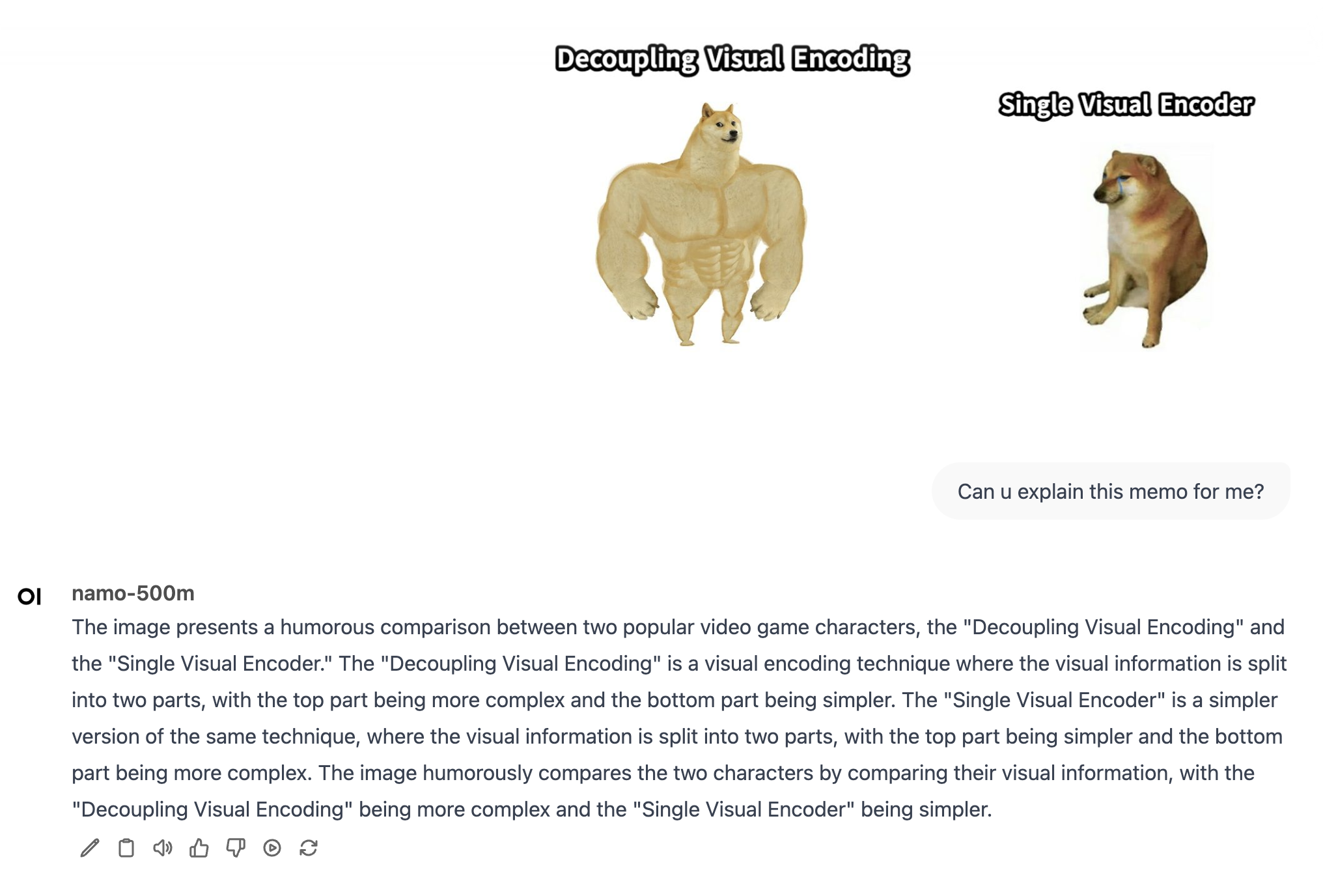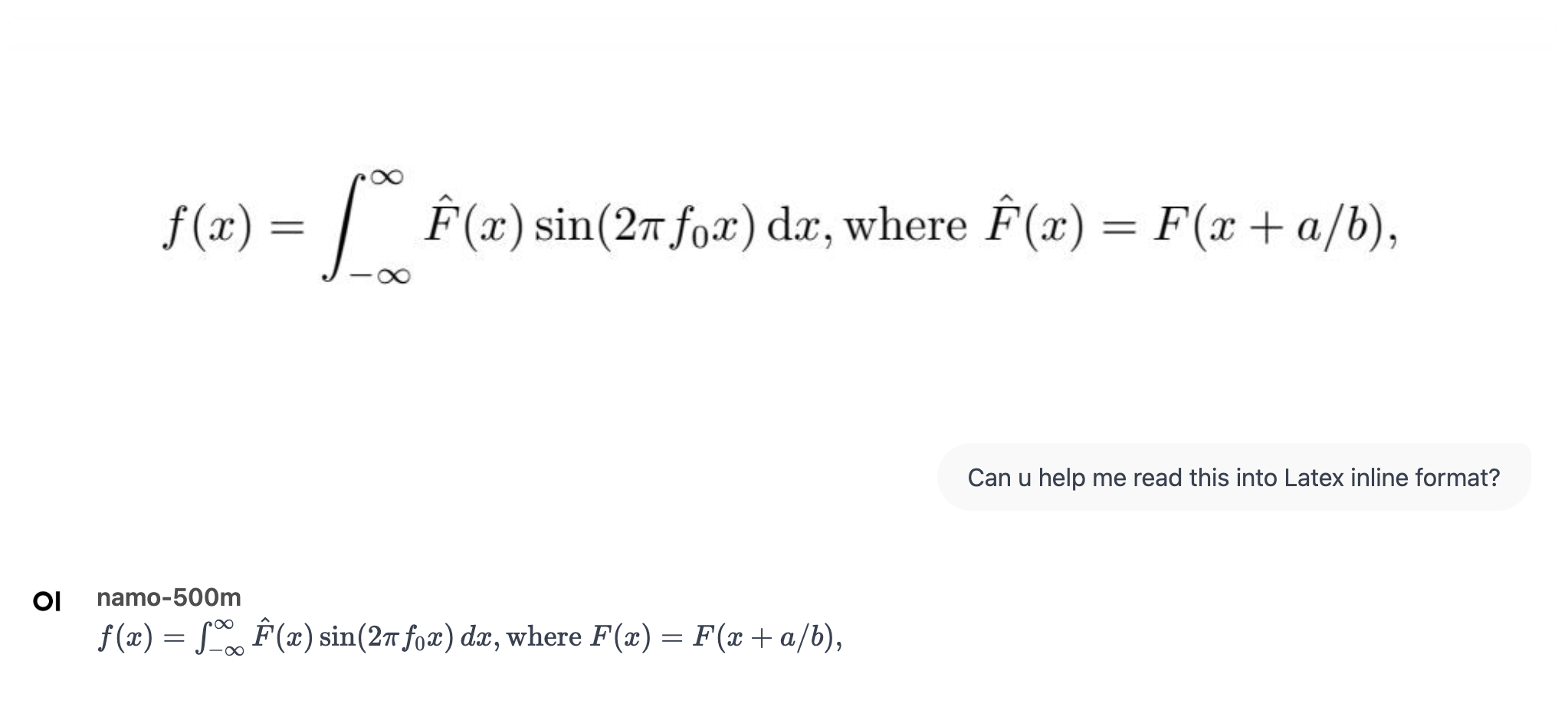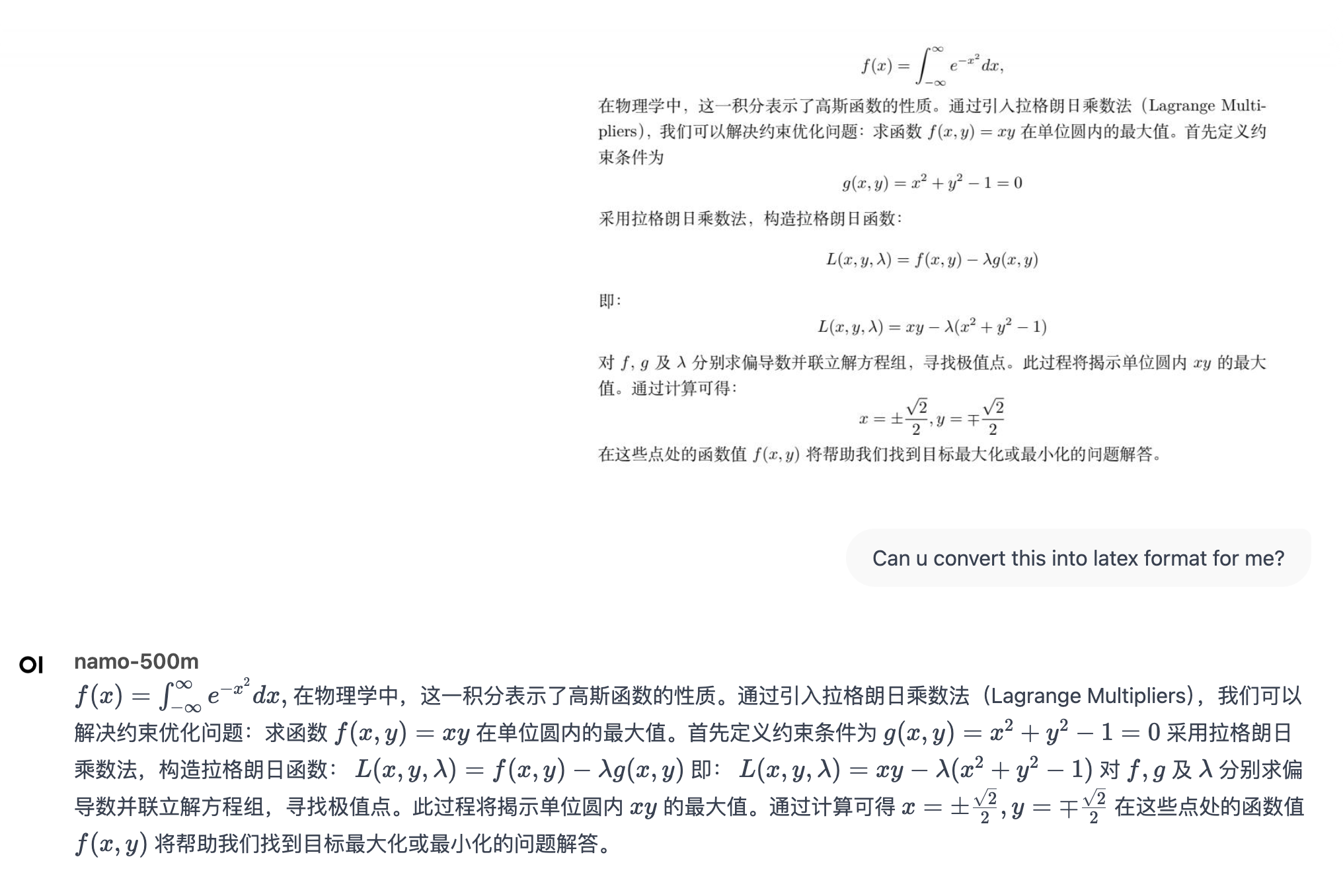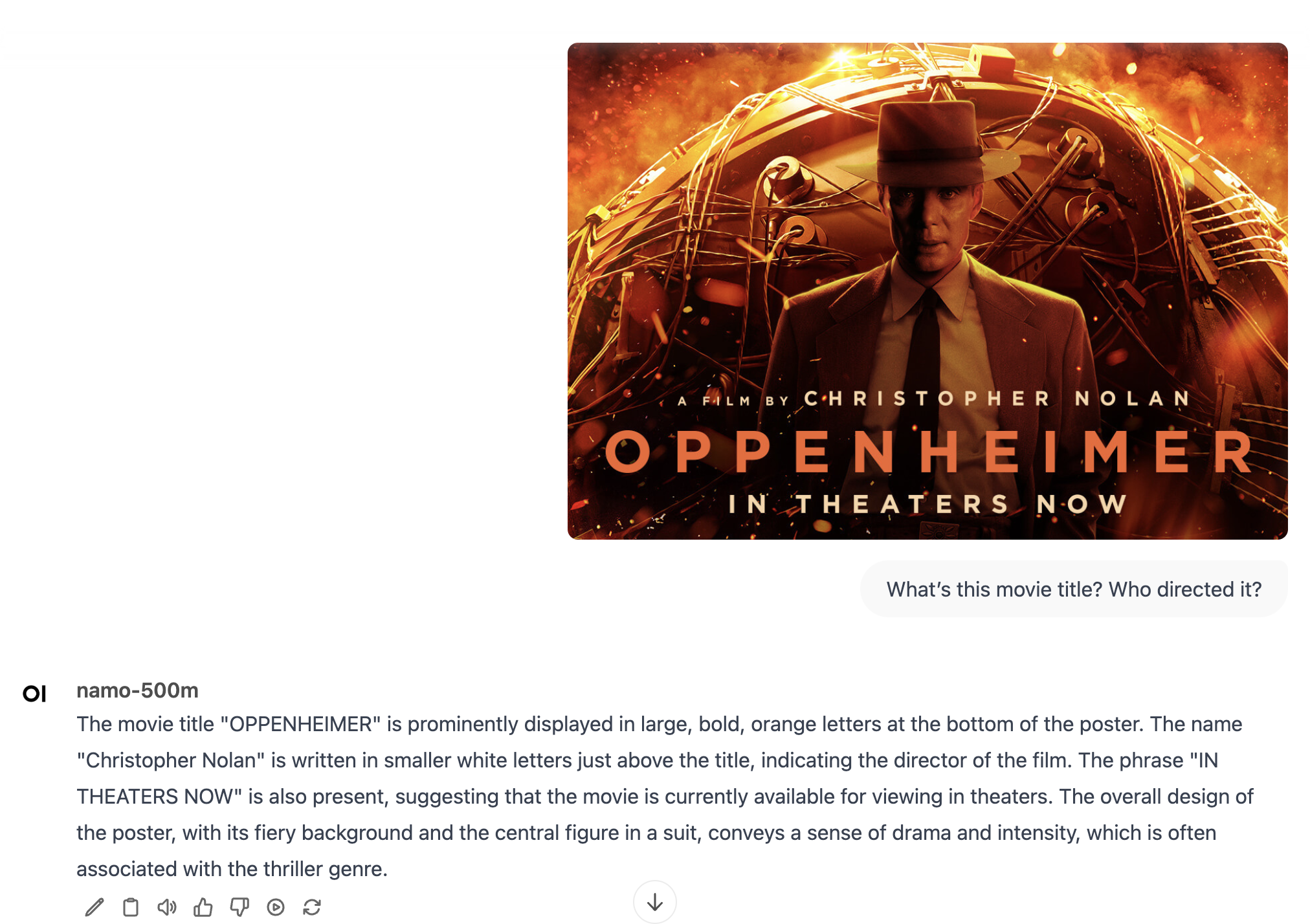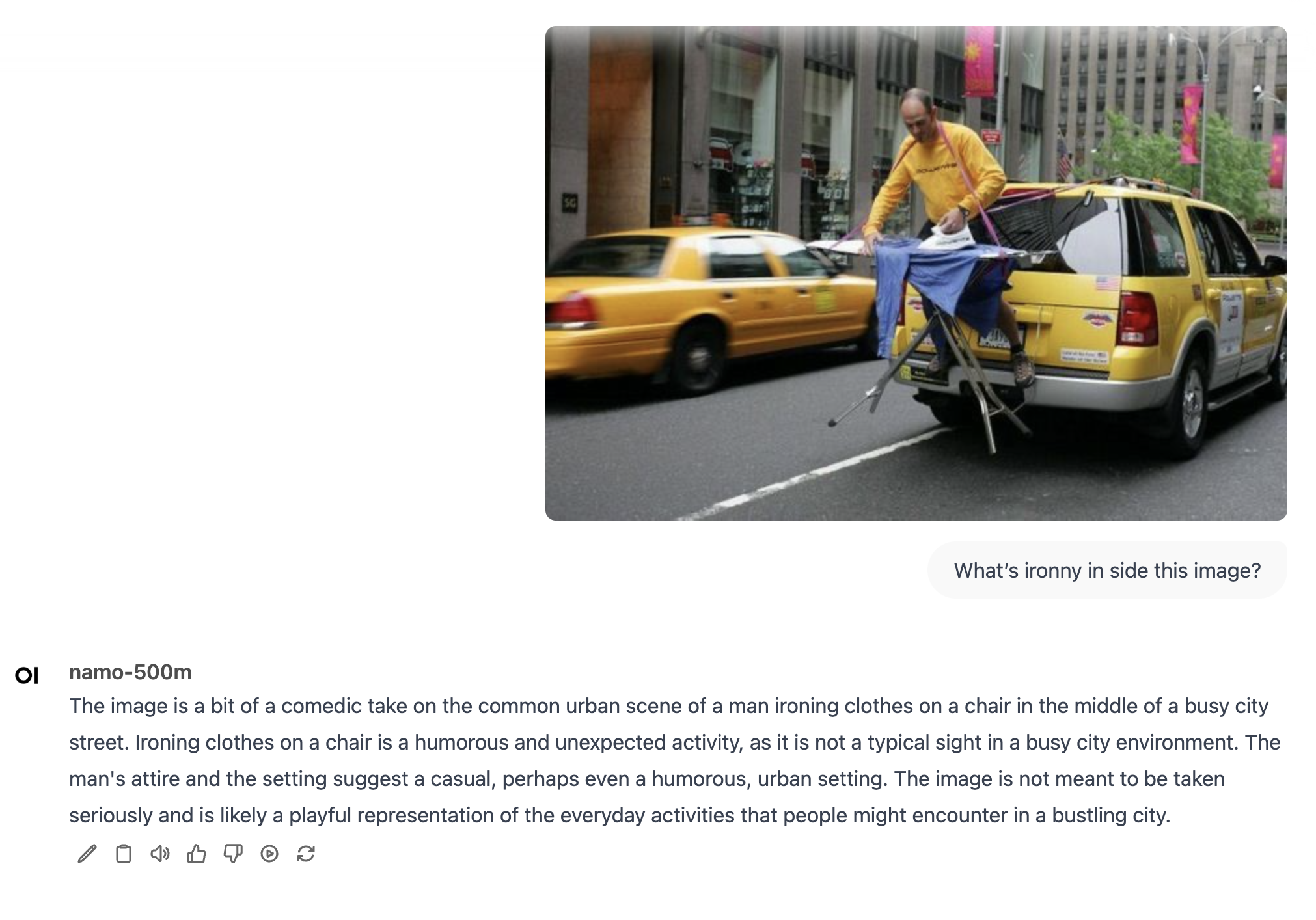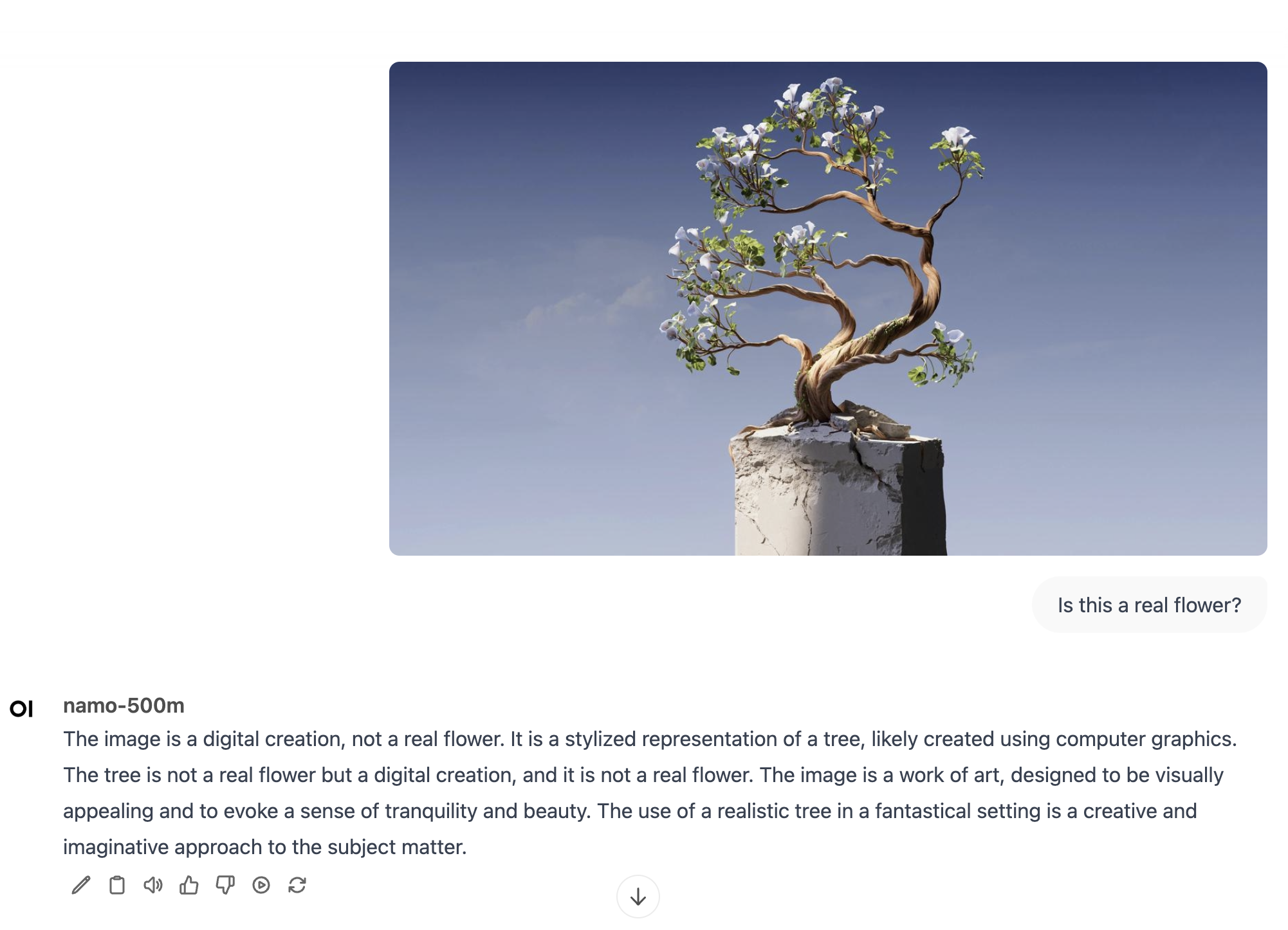🤗 Namo-500M-V1 | 🐝 Community
You: I don't have GPUs to run VLMs. Namo R1: Hold my beer.... let's do this on CPU.
Namo R1 🔥🔥 surpassed SmolVLM and Moondream2 in terms of same size! And we are keep evolving, more advanced models are under training!
We are excited to open-source Namo, an extremly small yet mighty MLLM. While numerous MLLMs exist, few offer true extensibility or fully open-source their training data, model architectures, and training schedulers - critical components for reproducible AI research.
The AI community has largely overlooked the potential of compact MLLMs, despite their demonstrated efficiency advantages. Our analysis reveals significant untapped potential in sub-billion parameter models, particularly for edge deployment and specialized applications. To address this gap, we're releasing Namo R1, a foundational 500M parameter model trained from scratch using innovative architectural choices.
Key innovations include:
- CPU friendly: Even on CPUs, Namo R1 can runs very fast;
- Omni-modal Scalability: Native support for future expansion into audio (ASR/TTS) and cross-modal fusion;
- Training Transparency: Full disclosure of data curation processes and dynamic curriculum scheduling techniques.
👇 Video Demo Runs on CPU:
namodemo3.mp4
Please join us in discord! https://discord.gg/5ftPBVspXj . For Chinese users, we will publish WeChat group in discord as well.
2025.02.22: more to come...!2025.02.22: 🔥🔥 SigLIP2 added! You can now training with SigLIP2 as vision encoder, Join us in discord;2025.02.21: 🔥🔥 The first version is ready to open, fire the MLLM power able to runs on CPU!2025.02.17: Namo R1 start training.
the result might keep updating as new models trained.
| Model | MMB-EN-T | MMB-CN-T | Size |
|---|---|---|---|
| Namo-500M | 68.8 | 48.7 | 500M |
| Namo-700M | training | training | 700M |
| Namo-500M-R1 | training | training | 500M |
| Namo-700M-R1 | training | training | 700M |
| SmolVLM-500M | 53.8 | 35.4 | 500M |
| SmolVLM-Instruct-DPO | 67.5 | 49.8 | 2.3B |
| Moondream1 | 62.3 | 19.8 | 1.9B |
| Moondream2 | 70 | 28.7 | 1.9B |
All you need to do is:
pip install -U namoA simple demo would be:
from namo.api.vl import VLInfer
# model will download automatically
model = VLInfer(
model_type="namo", device="cuda:0" if torch.cuda.is_available() else "cpu"
)
# default will have streaming
model.generate(images='images/cats.jpg', prompt='what is this?')That's all!
For cli multi-turn chat in terminal you can run python demo.py. (Namo cli directly in your terminal would be avaiable later.)
namo server --model checkpoints/Namo-500M-V1then, you will have OpenAI like serving in local.
Namo-500M, our first small series of models, is capable of performing remarkable tasks such as multilingual OCR, general concept understanding, image captioning, and more. And it has only 500 million parameters! You can run it directly on a CPU!
In contrast to open-source VLMs like Qwen2.5-3B and MiniCPM, the Namo series offers the following features that enable anyone to train their own VLMs from scratch:
- Extremely Small: Our first series has only 500 million parameters yet powerful on various tasks.
- OCR Capability: With just a 500M model, you can perform multilingual OCR, covering not only Chinese and English but also Japanese and other languages.
- Dynamic Resolution: We support native dynamic resolution as input, making it robust for images of any ratio.
- Fully Open Source: We opensource all model codes including training steps and scripts!
- R1 Support: Yes, we now support R1 for post-training.
Above all, we are also ready to help when u want train your MLLM from scratch at any tasks!
We are still actively training on new models, here are few things we will arrive:
- Speech model;
- Vision model with more decent vision encoders, such as SigLip2;
- TTS ability;
- Slightly larger models, up to 7B;
- Got error when using deepspeed:
AssertionError: no_sync context manager is incompatible with gradient partitioning logic of ZeRO stage 2?
Please upgrade transformers to 4.48+ and use latest deepspeed.
All right reserved by Namo authors, code released under MIT License.

